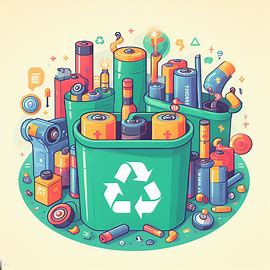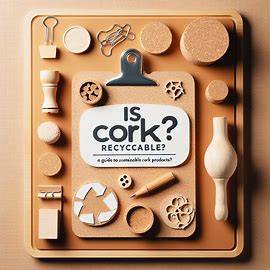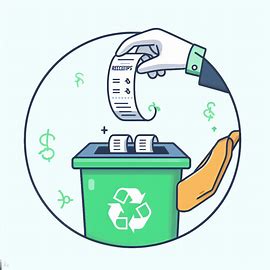The environmental impact of battery recycling is a critical aspect of sustainable waste management. Batteries, especially rechargeable ones like lithium-ion, nickel-metal hydride, and lead-acid batteries, contain various materials that can be harmful if not recycled properly. Understanding the environmental impact involves examining the benefits and outcomes of responsibly recycling batteries.
Here are the key points related to the environmental impact of battery recycling:
- Reducing Resource Extraction: Battery recycling reduces the need for extracting new raw materials. Recovering materials like lithium, cobalt, nickel, and other metals from old batteries lessens the reliance on mining, a process that can have significant environmental consequences, including habitat disruption, soil erosion, and water pollution.
- Minimizing Landfill Pollution: When batteries end up in landfills, they can pose serious environmental threats. Batteries contain harmful chemicals and heavy metals that can leach into the soil and water, contaminating ecosystems and potentially impacting human health. Recycling prevents these toxic elements from polluting the environment.
- Conserving Energy: The recycling process requires less energy compared to mining and refining new materials. Extracting metals from used batteries consumes significantly less energy and emits fewer greenhouse gases compared to the energy-intensive processes involved in mining and refining virgin materials.
- Preventing Air and Water Pollution: The incineration of batteries or improper disposal can release hazardous chemicals and heavy metals into the air, contributing to air pollution. When batteries break down in landfills, they can leach toxic substances into the groundwater, affecting water sources and potentially harming wildlife and human health.
- Circular Economy Contribution: Battery recycling is a significant step toward a circular economy, where materials are kept in use for as long as possible. By recovering valuable materials from old batteries and reusing them in new products or batteries, recycling helps close the loop, minimizing waste and reducing the need for raw material extraction.
- Promoting Sustainable Practices: Encouraging battery recycling raises awareness about responsible waste management and sustainable practices. It encourages individuals, businesses, and communities to participate in reducing their environmental footprint, promoting a culture of environmental stewardship and conservation.
In summary, battery recycling significantly minimizes the negative environmental impacts associated with improper disposal. It conserves resources, reduces pollution, and contributes to the efficient use of materials, making it an essential practice for a healthier and more sustainable environment.
Frequently Asked Questions (FAQs)
Certainly! Here are six frequently asked questions (FAQs) about battery recycling:
Are all types of batteries recyclable?
While many types of batteries are recyclable, some are more commonly accepted for recycling, such as rechargeable lithium-ion, nickel-metal hydride, and lead-acid batteries. Alkaline batteries, often found in household devices, are also recyclable in some locations but may not be as widely accepted for recycling programs.
How can I find a battery recycling center near me?
Locating a battery recycling center can be done through various means. Check with local waste management or recycling facilities, electronic stores, or municipal websites to find drop-off locations for battery recycling. Additionally, many retailers and manufacturers offer take-back programs or specific collection points.
What happens to batteries after they are recycled?
Once collected, batteries are sorted, disassembled, and broken down to extract valuable materials such as lithium, cobalt, nickel, and lead. These recovered materials are then reused in the manufacturing of new batteries or other products, contributing to a more circular and sustainable approach to resource utilization.
Are there any safety precautions I should take before recycling batteries?
To ensure safe handling, tape over the terminals of lithium and alkaline batteries or place them in individual plastic bags to prevent short-circuiting. Store used batteries in a cool, dry place and avoid mixing different types of batteries, as they require different recycling processes.
Can I recycle batteries that are damaged or no longer functional?
Yes, damaged or non-functional batteries can and should be recycled. Many recycling centers accept these batteries, but it’s advisable to tape over terminals or package them securely to avoid potential leakage or electrical discharge during transportation.
Why is battery recycling important?
Battery recycling is essential for environmental conservation. Proper disposal prevents hazardous materials from contaminating the soil and water, reduces the need for new raw material extraction, conserves energy, and minimizes pollution, contributing to a healthier environment and more sustainable use of resources.
conclusion
In conclusion, battery recycling is a fundamental practice for environmental sustainability and responsible waste management. The significance of recycling batteries lies in its ability to safeguard the environment by preventing harmful substances from seeping into the soil and water. By reusing valuable materials from old batteries, the recycling process lessens the need for raw material extraction and reduces energy consumption. It fosters a circular economy where resources are reused, ultimately minimizing pollution and conserving precious resources. Embracing battery recycling not only contributes to a healthier planet but also encourages a more mindful and conscientious approach to waste disposal. Each effort made in recycling batteries plays a crucial role in ensuring a cleaner, safer, and more sustainable world for current and future generations.







